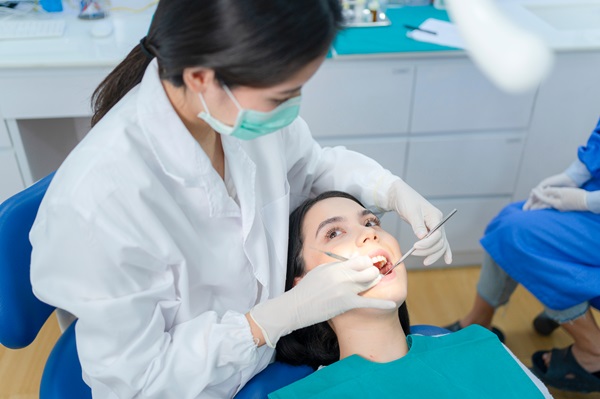



Thinking about getting dental sealant treatment? Dental sealants are a vital tool for preventing cavities or tooth decay. Tooth decay is a prevalent condition among children and teenagers, and when unchecked, it can lead to other serious oral issues such as premature tooth loss and gum disease. In combination with other preventive care measures such as excellent home oral care routine and biannual dental checkups, dental sealants can improve the tooth’s defenses against tooth decay and keep the mouth healthy.
How dental sealants protect the teeth
Generally, dental sealants are meant to protect the molars from bacteria and food debris, which form plaque on the teeth. The molars and premolars at the back of the mouth have pits and fissures that trap food and are often harder to clean. Therefore, most cases of tooth decay occur on the molars. The decay-causing bacteria hide in the grooves of the chewing surfaces of those teeth. Due to their location in the mouth, it can be hard to brush the teeth properly using a regular toothbrush.
If a dentist examines the child's mouth and finds them to be highly susceptible to tooth decay, they may decide to apply a dental sealant over the teeth. The sealant becomes a barrier, stopping food particles and bacteria from collecting over the tooth enamel. Dental sealants do not improve oral health directly and are not designed to substitute other preventive treatments such as fluoride application and general oral care. Usually, sealants are a comfortable, inexpensive, and aesthetically pleasing way to protect the teeth from needing dental fillings.
Applying dental sealants
Dental sealants are made from a liquid plastic material that hardens over the teeth. First, the dentist will carefully clean and prepare the molars. With a brush, they will paint the sealant over the targeted teeth. The sealant is usually tooth-colored, so it does not stand out after application.
After the sealant is applied uniformly over the teeth and to the dentist’s satisfaction, it may be either left to harden on its own or exposed to a unique curing light, depending on the type of sealant used. The light hardens the sealant over the teeth to achieve a clear layer of hard, thin, resilient, and protective barrier. The application of dental sealants is completed within one dental appointment and is completely painless.
When to apply the sealant
Sealants are typically first applied as soon as the primary molars erupt. Depending on the child’s oral care habits, the sealant may survive the entire lifetime of the primary teeth or require multiple replacements. The durability of sealants mostly depends on the oral habits of the patient.
The dentist will suggest applying a sealant over the permanent molars immediately after they erupt. That way, the teeth will be protected before there is a case of tooth decay. It is inadvisable to apply sealants over a tooth that has had a dental filling.
Do you need dental sealants?
Dental sealants prevent bacteria and food particles from gathering on the chewing surfaces of the teeth, thereby preventing the occurrence of tooth decay. The dentist will check the condition of the sealant and reapply if it starts to deteriorate. If you have additional questions about the procedure, contact our office for an appointment.
Request an appointment here: https://www.potomacwoodsfamilydentalcare.com or call Potomac Woods Family Dental Care at (301) 202-1553 for an appointment in our Rockville office.
Check out what others are saying about our dental services on Yelp: Dental Sealants in Rockville, MD.
Related Posts
General dentists recommend dental sealants when individuals are looking to protect their teeth against cavities. Cavities can lead to tooth decay, which can result in loss or the need for replacement. Dental sealants are an easy and painless way to protect the teeth so that they remain healthy and strong. Ready to find out more?Outlined…
Using the right toothbrush is part of preventive dentistry. Your dental health is more secure if you have the right tool for cleaning your teeth and gums. An effective toothbrush can help you reach your dental health goals. If you want to know the basics of choosing the right toothbrush as part of preventive dentistry,…
Practicing preventive dentistry at home allows you to reap many benefits for your general health. Brushing and flossing every day is a basic way of keeping your mouth in good shape. Having healthy teeth and gums helps support your whole body’s health. If you want to find out why good everyday dental hygiene is important…
A family dentist can help you maintain your healthy teeth and gums. Regular checkups enable the dentist to perform a thorough dental exam. This can help identify dental issues early. Here are the details on how a family dentist performs a dental exam.Every dental exam will begin with a thorough evaluation of the patient’s dental…


